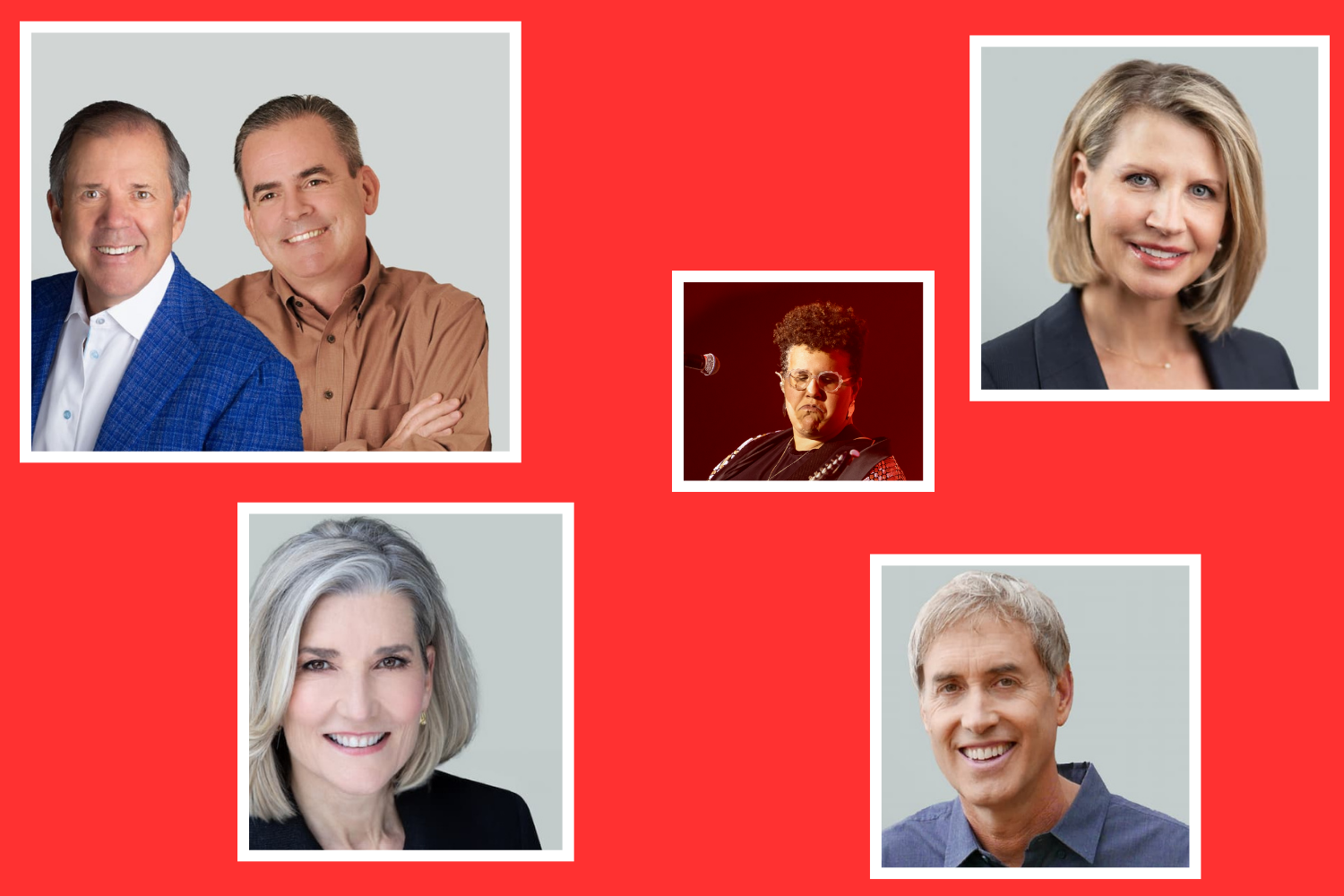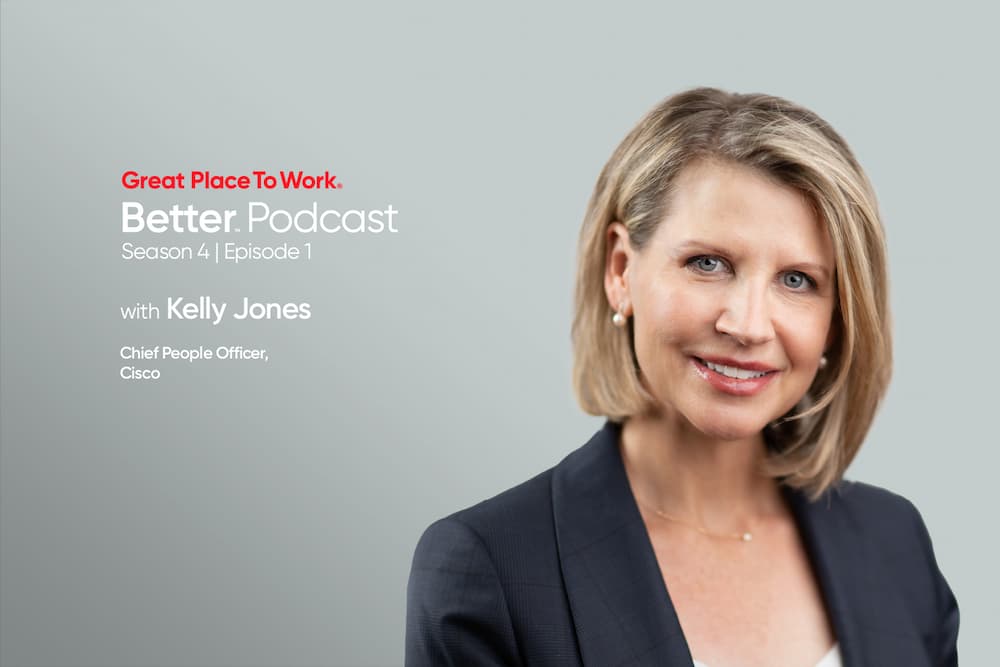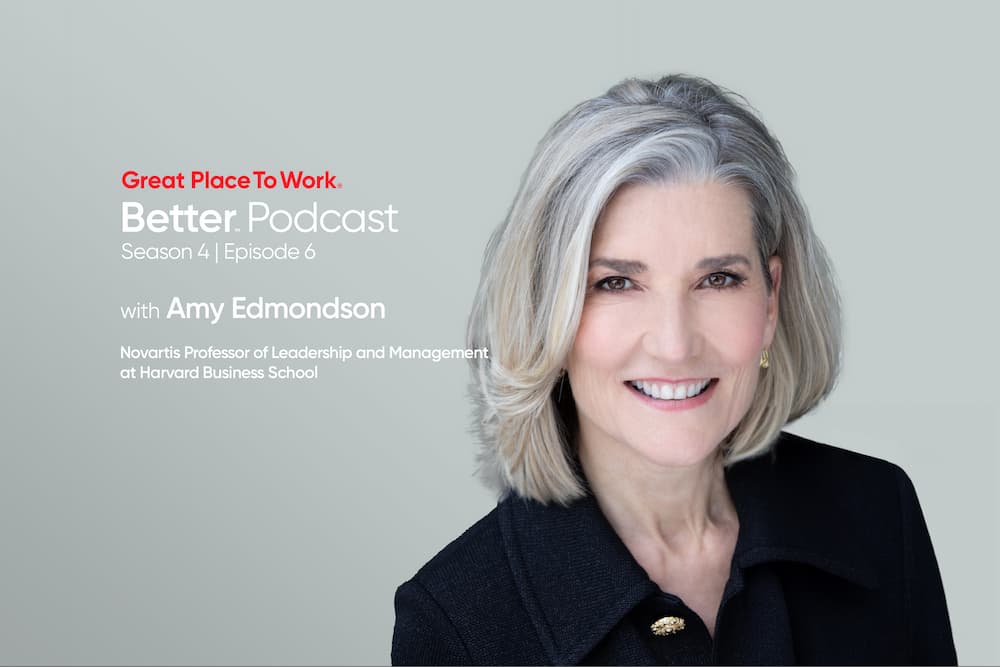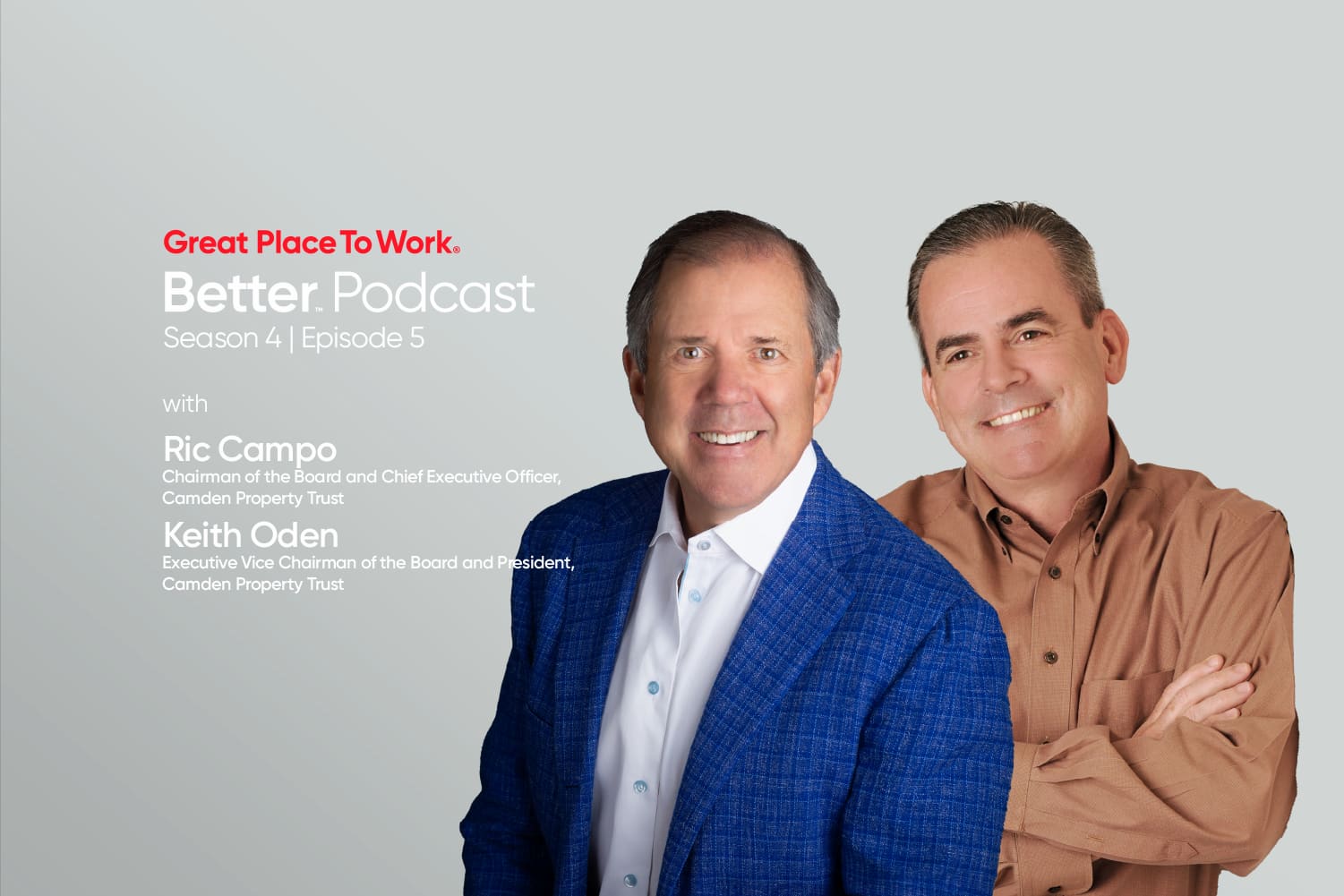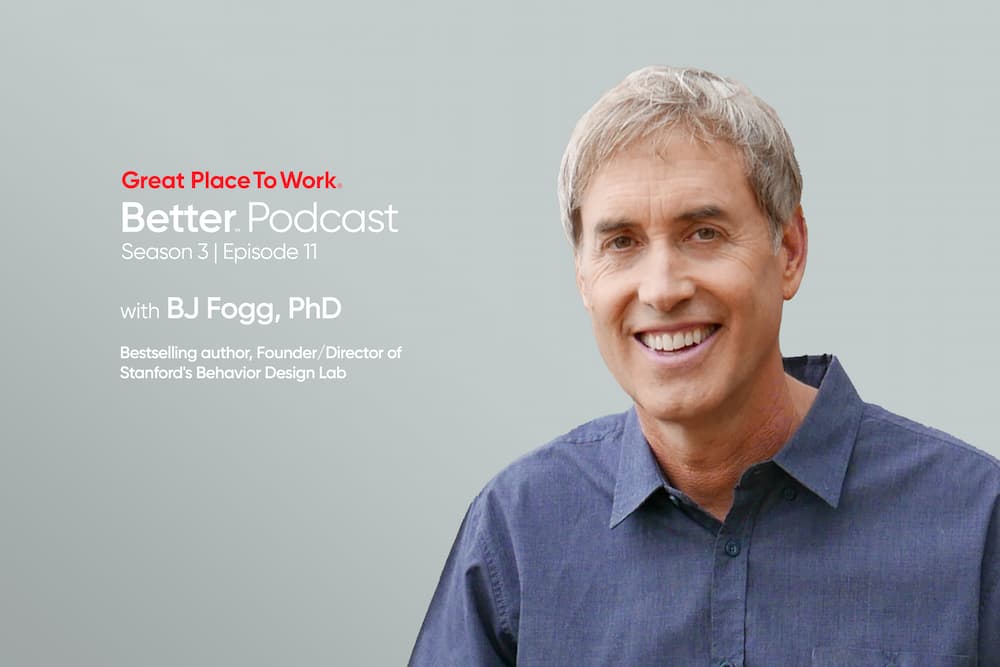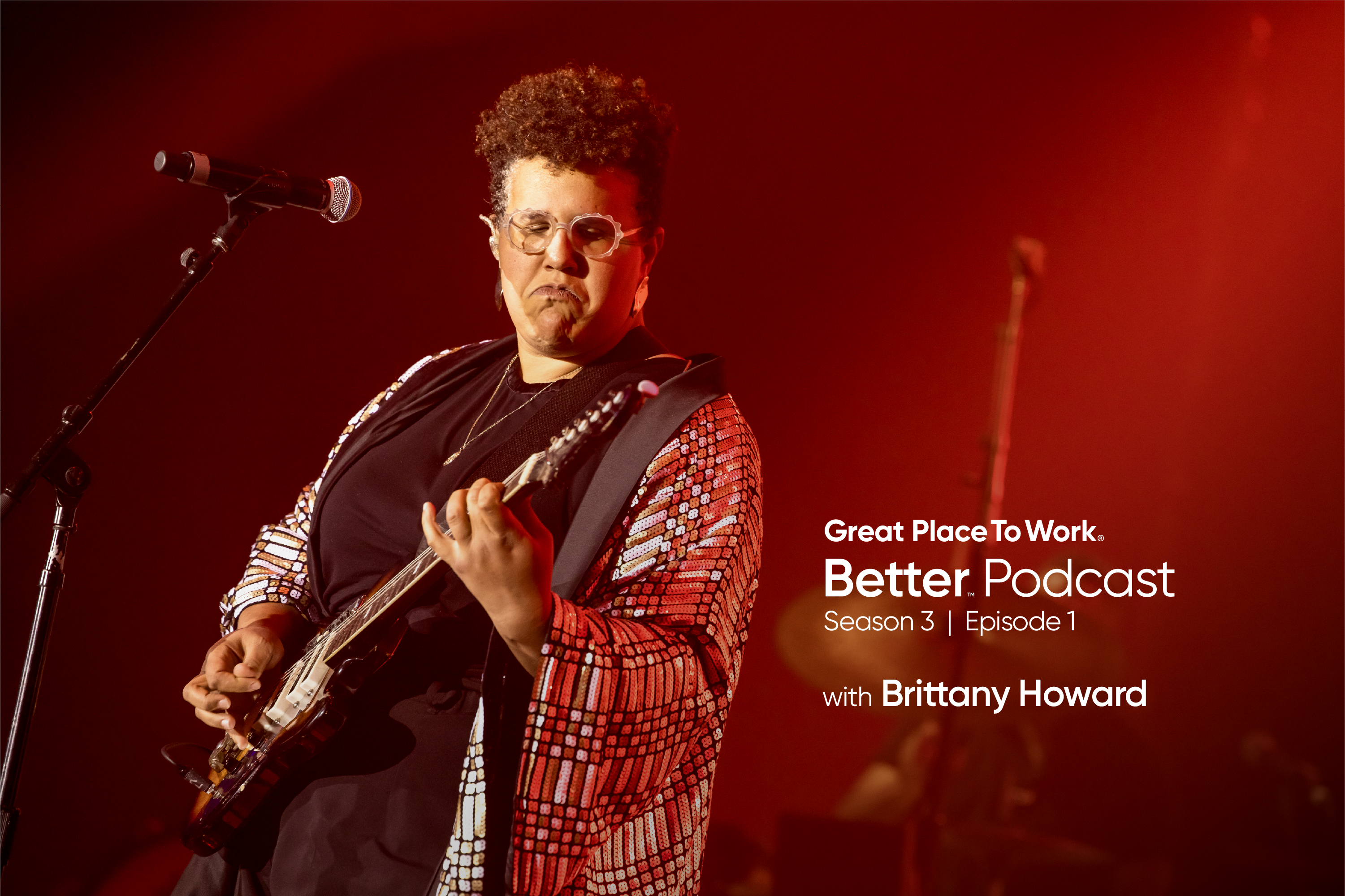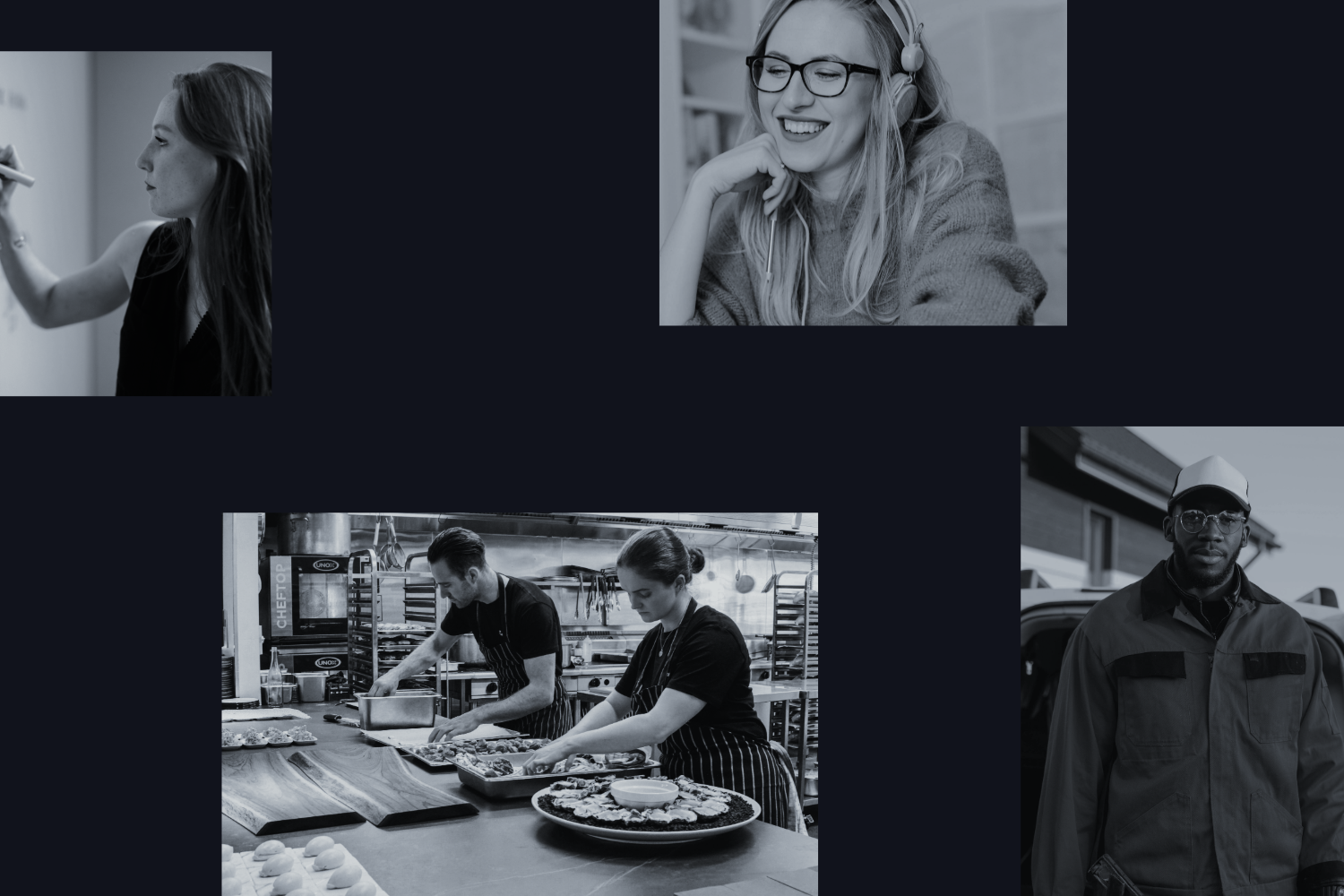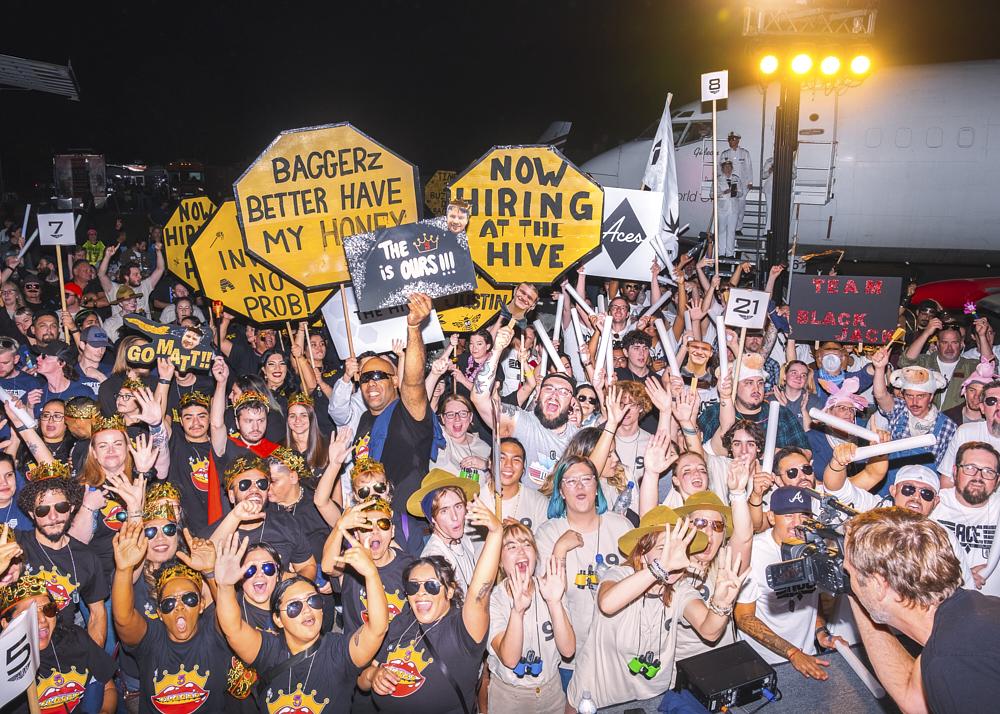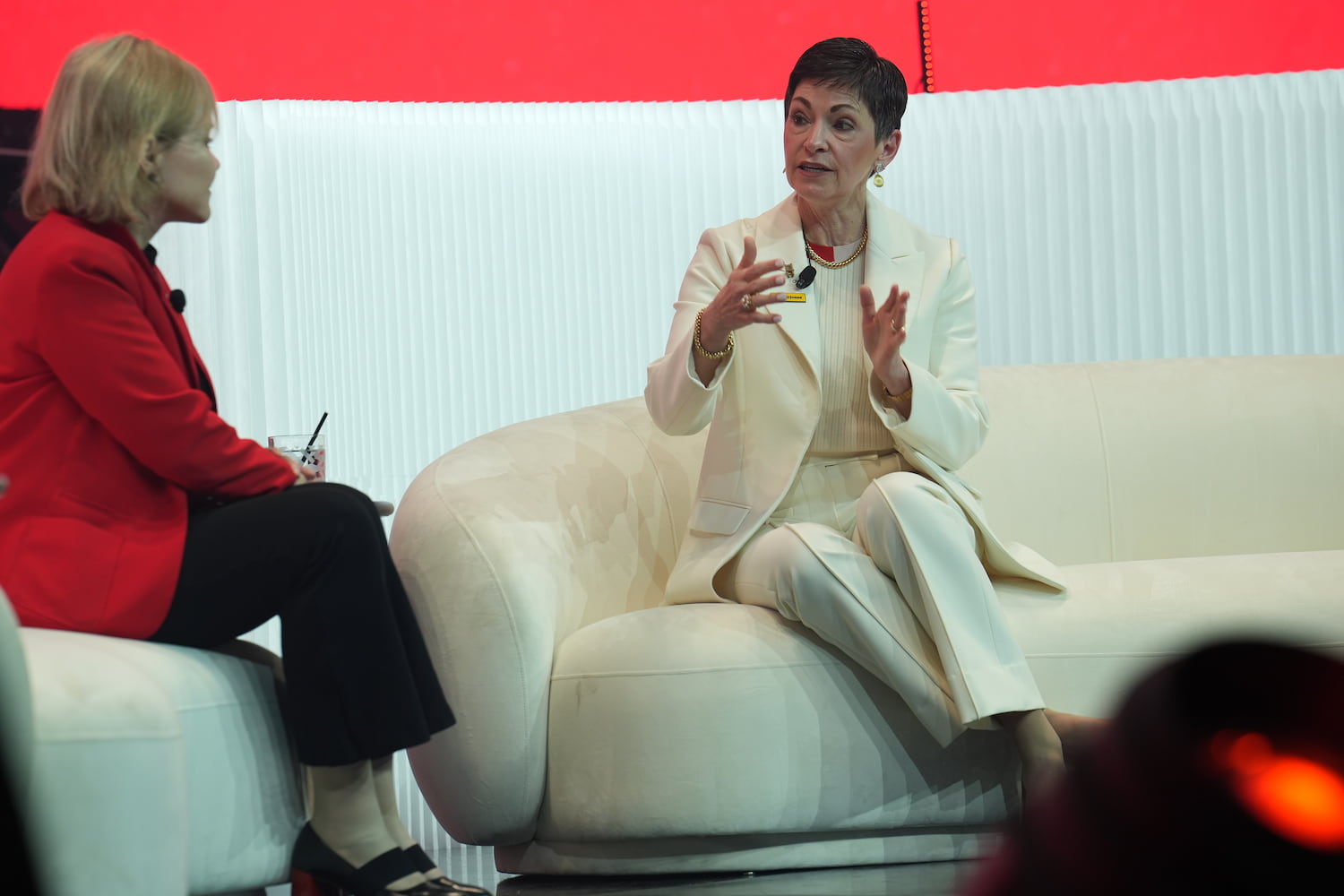
Belonging, Developing Leaders, High-trust leadership
The new season of our podcast “Better” launches Oct. 8 and to celebrate, we looked back at earlier seasons to remember some of the most insightful moments shared by our guests.
Every guest offers an inside look at their work and experience, shedding light on how business leaders can create a great workplace for every employee, and how that culture drives business performance. With so many amazing interviews to choose from, we selected five moments that offer a collage of what our show is all about.
You can subscribe and listen to our entire back catalogue here.
Kelly Jones shared Cisco’s framework for one-on-one check-ins between people leaders and their direct reports at the tech company, which regularly tops Best Workplaces™ lists.
Here are the questions she says Cisco asks leaders to use in these important meetings:
- Did you get the opportunity to use your strengths every day this week?
- Were you able to provide great value this week?
- How do you feel about the value that you provided?
- What did you love that happened this week?
- What did you loathe that happened?
These questions help identify strengths employees bring to the team, Jones says. Great workplaces make sure people are playing to their strengths and finding meaningful work at all levels of the organization.
Top tip: Asking employees about what they “loathe” can quickly reveal if they are in a role aligned with their strengths. Regular check-ins with people leaders build trust needed to unlock the full potential of your workforce.
Amy Edmondson, Harvard professor and bestselling author of “Right Kind of Wrong: The Science of Failing Well,” is best known for coining the term “team psychological safety” — a state where employees feel comfortable taking reasonable risks that might end in failure, which drives higher levels of innovation and performance.
In her episode, she discussed her finding of why high performing teams reported more errors than lower performing teams. Those teams were more honest in reporting mistakes because they felt psychologically safe and weren’t afraid of being punished for trying new things or speaking up.
Edmondson offered a clear example of how leaders can promote psychological safety.
“I think leadership is an educational activity, and this is an ongoing educational journey,” she explained.
“We need to continue to help people shift their mindsets from, ‘I got this’ to ‘I wonder what would happen if,’ and shift their mindsets from the idea that we’re supposed to have the answers and execute, hit our targets, and everything's supposed to be like a well-oiled machine to a mindset where it’s, ‘Wow, we live in a volatile, uncertain world and we’ve got to be doing all sorts of things at all times to stay ahead of it.’”
Top tip: Identify different kinds of failure and incentivize healthy risks. Intelligent failure, where you get an undesired result from experimenting in unknown territory, is different from a basic failure, caused by inattention to detail.
Check out the full episode to hear her insights on what drives agility and innovation on high-performing teams.
Ric Campo and Keith Oden shared their experience building Camden’s award-winning culture and how care impacts the bottom line.
“It’s an absolute prerequisite for outperforming competitors,” shared Campo. “The reason is that when people care about what they’re doing and they care about their job, they do better, and they work harder and smarter.”
Campo argues that care for employees is easily traced to the care employees show to customers.
“If you take Camden’s total rate of return on our stock price over the last 20 years, we’re in the top quartile of our peer group,” he said. “That outperformance is because when it’s snowing in Washington D.C. or Denver, I’ve got maintenance people digging people’s cars out on off hours because they care. That drives resident satisfaction, that drives shareholder satisfaction through high return.”
Top tip: Treat leadership behaviors like care as you would any business priority, with measurement and accountability through tools like the Great Place To Work Trust Index™ survey.
We asked the bestselling author of “Tiny Habits” for his best advice on how to get leaders to change behaviors or habits, a tough task for any HR leader.
“The best way to persuade is a combination of narrative and data,” BJ Fogg shared in his episode of the “Better” podcast. A great story might be a Ted Talk or a personal narrative, either from someone at your company or from an external source.
And then, bring in the data. He explained: “Those work differently in people's brains and both of them can be very persuasive, and together they’re very powerful.”
Top tip: Use tiny habits to add more moments of gratitude. Fogg likes to start every day with what he calls the “Maui Habit”: As soon as your feet touch the floor in the morning, you say “It’s going to be a great day.”
Check out his full episode for how to work on your habits to improve listening, tips for changing your behavior, and his No.1 tiny habit that starts every day on the right foot.
Brittany Howard, lead singer of the Alabama Shakes and Grammy-winning solo artist, joined the “Better” podcast to talk about her career, her album “Jamie,” and the power of belonging, no matter what industry you work in.
“Belonging is a very human thing,” she shared. “When I was younger, I wanted to have something that was my own. Something that couldn’t be controlled. No one was really allowed to have an opinion on it.”
This desire to be seen is what has inspired her career and continues to inspire her music.
“My overall message is that of acceptance, of trying to love all the different parts of myself, trying to understand people and where they’re coming from,” she said.
Top tip: When chasing your goals, whether it’s to lead a rock band or start your own company, be sure to investigate your “why.”
Check out this special episode for a closer look at the connection between inclusive culture and creative expression.
Download new episodes of the “Better” podcast, available on all streaming platforms.


